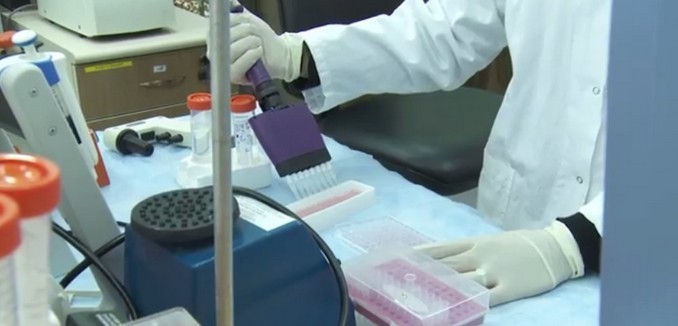Quiet Therapeutics’ specially coated nanoparticles act like Trojan Horses entering cancer cells undetected and then killing them. An Israeli breakthrough in the treatment of cancer has the international medical community taking notice. Developed by Tel Aviv University Professors Rimona Margalit and Dan Peer, this novel drug-delivery platform involves the use of “GAGomers,” a new class of nanoparticles (coated with glycosaminoglycan, or GAGs, a polysugar) that specifically target tumors and blood cancers based on a biomarker expressed on malignant tissue.
For their groundbreaking work, Margalit and Peer were granted the prestigious Untold News Award in New York City in November.
But it was already back in 2010 that leading Israeli venture capital firm Pontifax established the bio-pharmaceutical company Quiet Therapeutics, to make Margalit’s and Peer’s innovative platform accessible and marketable to oncology patients and their doctors.
Currently funded by Pontifax and Arkin Holdings, the biotech startup initially operated within the incubators program of the Office of the Chief Scientist, the arm of the Economy Ministry charged with fostering industrial research and development in Israel.
Quiet Therapeutics General Manager and Chief Operations Officer Dr. Ron Lahav explains why GAGomers are what he calls “game-changers” in the field of cancer-treatment technology.
“A hallmark of cancer is cell replication,” he tells ISRAEL21c at the company’s office in the Weizmann Science Park in Ness Ziona, south of Tel Aviv. “The aim of most chemotherapeutic drugs is to thwart the replication machinery in cancer cells. The problem is that these drugs are not targeted, and therefore are not delivered efficiently to the tumors.
“Due to this inefficient delivery, and the accompanying unwanted side effects, oncologists face the problem of administering sufficient chemo to kill the cancer, while limiting its dose so as not to cause irrevocable harm to healthy tissues. Our drug-delivery system has the potential to greatly minimize that dilemma, since it transports the drugs directly and specifically to the cancer cell.” (via Israel21c)




